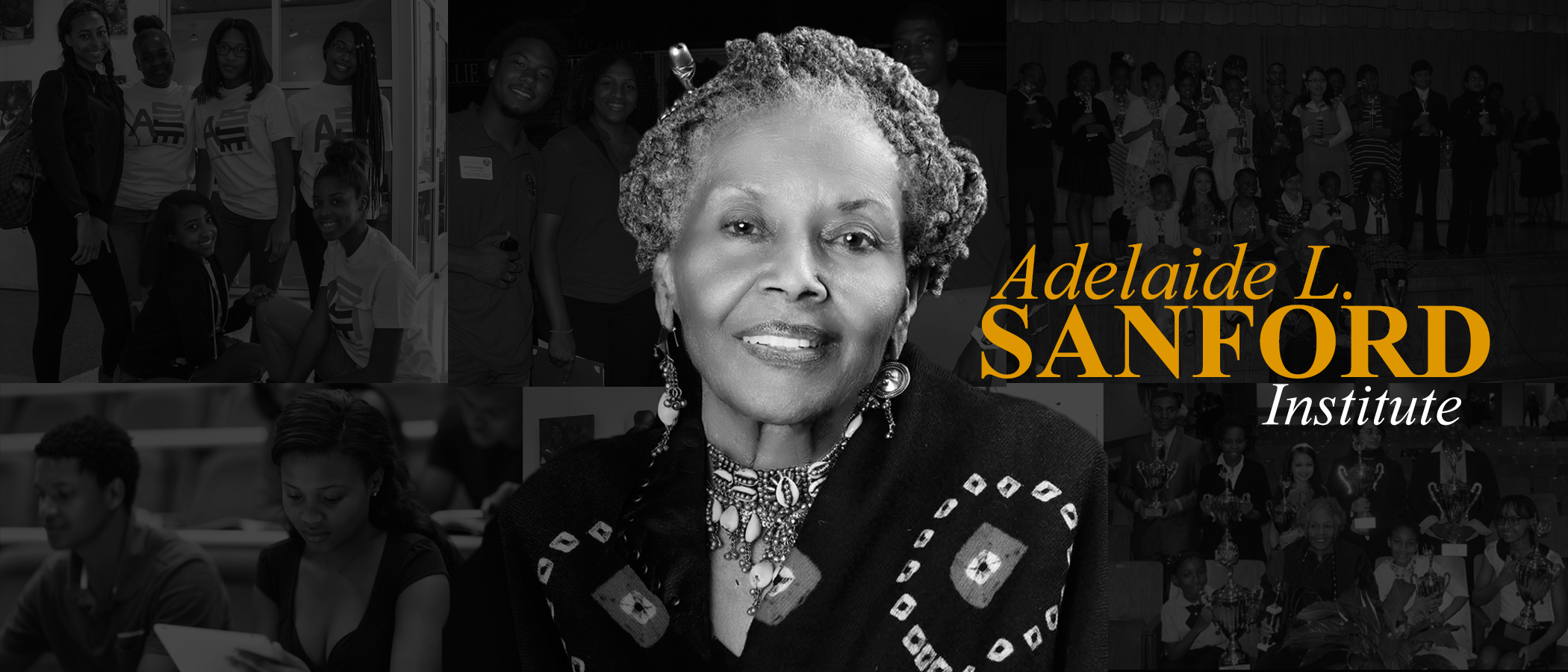CULTURALLY RESPONSIVE EDUCATION
“The concept of culturally responsive education builds on the notion of a culturally relevant pedagogy (Ladson-Billings, 1994). Culturally responsive education provides for intergenerational transmission of knowledge about our values, beliefs, traditions, customs, rituals and sensibilities along with the understanding of the need to sustain them. Culturally responsive education, in daily practice, utilizes a pedagogy that is both humanizing and liberating. The cultural resources of African-descended people “work as a psychological tool kit of coping strategies … that are not mere reactions to historical oppression.” They are “the bricks out of which senses of identity and group membership are constructed” (Lee, 2005).
Through culturally responsive education we learn “to determine what is in our collective interests as African-descended people, distinguish our interests from those of others, and recognize when our interests are consistent and inconsistent with those of others. Every cultural group must provide for this transmission of cultural knowledge or it will cease to exist” (Shujaa, 2004).
References
Asante, Molefi K. 1988. Afrocentricity. Trenton, N.J.: Africa World Press.
Boykin, A. Wade. 1986. “The Triple Quandary and the Schooling of Afro American Children”. In The School Achievement of Minority Children, edited by Uric Neisser. Hillsdale, New Jersey: Lawrence Erlbaum Associates.
Ellison, Ralph. 1986. Going to the Territory. New York: Random House.
Gay, Geneva, and Willie Baber. 1987. Expressively Black. New York: Praeger.
Hale, Janice E. 2001. Learning while Black: Creating Educational Excellence for African American Children. Baltimore, Maryland: The Johns Hopkins University Press.
Hilliard, Asa G., III. 1995. The Maroon within Us. Baltimore: Black Classics Press.
________. 1997. SBA: The Reawakening of the African Mind. Gainesville, Fla.: Makare Publishing.
Ladson-Billings, Gloria. 1994. The Dreamkeepers: Successful Teachers of African American children. San Francisco, CA: Jossey-Bass.
Lee, C.D. 2005. The State of Knowledge about the Education of African Americans, in J. King (Ed.), Black Education: A Transformative Research and Action Agenda for the New Century. New York: Routledge, 45-72.
Perry, Theresa, and Lisa Delpit, eds. 1998. The Real Ebonics Debate. Boston: Beacon.
Shujaa, M.J. 2004. Education and schooling: You Can Have One Without the Other.” In A. Mazama (Ed.) The Afrocentric Paradigm. Trenton, NJ: Africa World Press, 245-263.
Cultural Responsiveness is grounded in the following four principles:
Welcoming and Affirming Environment
High Expectations and Rigorous Instruction
Inclusive Curriculum and Assessment
Ongoing Professional Learning
The primary goals are:
assist educators design and implement a student-centered learning environment that affirms racial and cultural identities and fosters positive academic outcomes;
develop students’ abilities to connect across cultures;
empower students as agents of social change; and
contribute to an individual’s civic engagement, learning, growth, and achievement through the cultivation of critical thinking.
New York State Education Department, Culturally Responsive and Sustaining Framework, 2018.
For Students
In order to provide our students with a culturally responsive education, we must:
•Foster the development of high achievement and performance in literacy, mathematics, the humanities, and technologies that are necessary to negotiate full participation in the society;
•Promote pride, self-respect and high self-esteem;
•Instill and support citizenship skills by promoting questioning and critical thinking skills, and by teaching and modeling democratic values;
•Encourage the use of a wide variety of instructional strategies that are connected to different learning styles;
•Define good teaching as knowledge of content and methodology as well as knowledge of one’s students and how they learn; and
•Provide historical overviews of the nation-state, the continent and the world that accurately represent the contributions of all ethnic groups to the storehouse of human knowledge.
The achievement of ethnic pride, self-sufficiency, equity, wealth, and power for African-descended people in the United States — or wherever in the world they may be — will require a collective, although not monolithic, cultural and political worldview. This type of world-view can only be transmitted through a process of culturally responsive education, strategically guided by an African cultural orientation and understanding of how societal power relations are maintained.
For Teachers
What school practitioners believe about the possibilities for teaching and learning for students of African ancestry has a profound impact on what they choose to teach, how they teach it, and how they determine what their students have learned.
The culturally responsive pedagogy needed to achieve these goals will ensure that students:
•Experience academic success;
•Have the skills and acumen necessary to support and expand the transmission of the culture throughout the African Diaspora;
•Develop and/or maintain cultural competence;
•Develop a critical consciousness through which they challenge and critique the status quo of the current social order and the cultural norms, values, mores, and institutions that produce and maintain social inequities;
•Develop authentic knowledge about their own and others’ cultural heritages;
•Build bridges of meaning between home and school experiences as well as between academic abstractions and current socio-cultural realities; and
•View concepts, issues, themes, and problems in ways that reflect and respect multi-ethnic perspectives.
For Parents
Establish goals with your children toward their future aspirations and collaborate with teachers to make plans about achieving them.
Communicate with your child’s teachers using your preferred language and means of communication (e.g., in-person, phone, email, texts, notes) from the variety of methods of participation offered (in-class, in-school, at-home, community-based).
Advocate to ensure that school culture and environment is safe and responsive to children’s needs. Partner with teachers and school leaders to inform them of, and assist with, school community needs
Be aware of, and collaboratively advocate for, children having access to a wide range of educational coursework and programming.
Share knowledge about your child’s interests, learning style, learning preferences, and prior educational experiences with trusted teachers and leaders in the school community.
Share traditions and cultural assets with teachers to support the integration of these values within curriculum.
Support students in engaging with their local community
Seek help and guidance from trusted teachers, leaders, and families in the school community, when needed
Participate in decision-making around programs, policies, and learning activities that impact the school community.
Work with parent organizations to ensure that parents are represented in the school across various identities including race, family orientation, social class, profession, religious backgrounds.
Offer time and talents to school events and trainings, to the extent possible.




